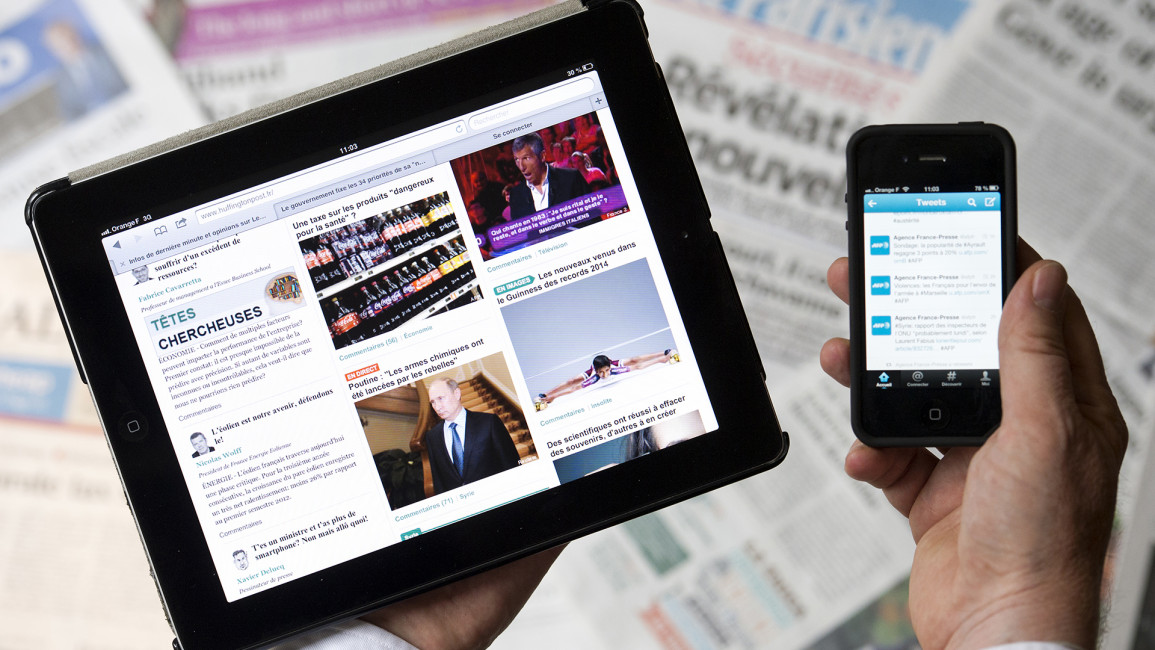
Syrians speak out through social media
Syrians at home and abroad have been changing the way they use social media as the violence surrounding them has grown since the start of the uprising.
Emboldened by a perception of the Baath regime's diminishing power, they have moved from merely sharing news online to using the internet as an open space for debate and commentary.
This includes posting footage of protests and voting on slogans for weekly Friday protests using YouTube channels and blogs. They have also filmed themselves commenting on political or military developments in the region.
Their videos, produced by non-professionals, are widely viewed and have sparked much debate.
During the first three years of the uprising Syrians were preoccupied with political and military developments. Now they focus on social issues that have been ignored by mostly pro-Assad television productions.
Darine Hassan, a Syrian living in the Netherlands, posts footage of her daily life that shows her dancing or cooking while holding her camera, or criticising macho young men.
Jude Aqqad, a Syrian woman living in Sweden, produces more sober videos. She recently posted a video commenting on the fall of Palmyra to the Islamic State group. In the footage she calls on her followers to fight back.
There is also the website Syrian Salabina [Syrian Humour], which is used as a platform to post videos made by Syrians, - especially amusing ones.
Adham Qad in Germany films himself commenting on Syrians' characteristics in an Aleppan accent.
This reflects a trend among young Syrians to use social media to focus on ordinary people and their lives, instead of prominent figures and traditional leaders.
Young people want a bigger say in their country's affairs and the changes taking place around them, which has made them more outspoken than ever before.
This article is an edited translation from our Arabic edition.



